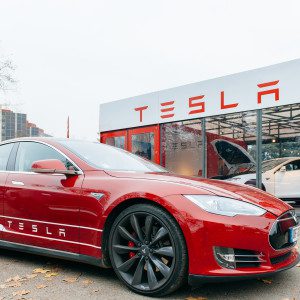U.S. transportation is about to get a mighty electric shock.
The days of the internal combustion engine are numbered. The electric car is about to do to the traditional gasoline and diesel car engine what the cell phone is doing to the copper-wire, landline telephone: shoulder it out of the way.

Andrew Paterson, a principal with the Verdigris Capital Group, told a conference in Washington on June 7, electric car sales will at least quadruple in the coming decade and then really begin to accelerate. This, he said, was part of a larger electric boom that would see the doubling of world electric demand, mostly in Asia, by the middle of the century.
Electric utilities in the United States stand to benefit from the switch from gasoline and diesel to electricity largely because they will be able to meet the new demand without adding new generation, according to the Electric Power Research Institute in Palo Alto, Calif. It believes most of the charging of electric vehicles will take place off-peak, at night and when there is less demand. At worst the new load will fall partly during the day, when there is a surplus of solar power.
Analysts say much depends on whether commercial and company parking facilities can be turned into charging stations as well. Maybe when the boom really picks up, even parking meters will become charging stations.
The change in transportation will have huge effects beyond the car infrastructure. Gradually, gas stations will become obsolete. Technicians who service cars with oil changes and tuning will be out of work.
Electric cars are fundamentally simpler than today’s vehicles — they will run for tens of thousands of miles without maintenance, and that will be confined to things like tires, brakes and lights. Cities will get cleaner and quieter.
The speed of technological evolution is the unknown, but it will control the accelerator in the race to electricity. Better batteries, faster charging and more public confidence in the duration of each charge will all control the rate of change.
Like all revolutions, there will be winners: those who find out how to make money out of battery charging and those who make electricity. And losers: oil companies, gas stations, service departments of dealerships and the long-dreamed-of hydrogen car.
Incontrovertibly, the air in cities will be a winner — a big, big winner.
Read more: Inside Sources
